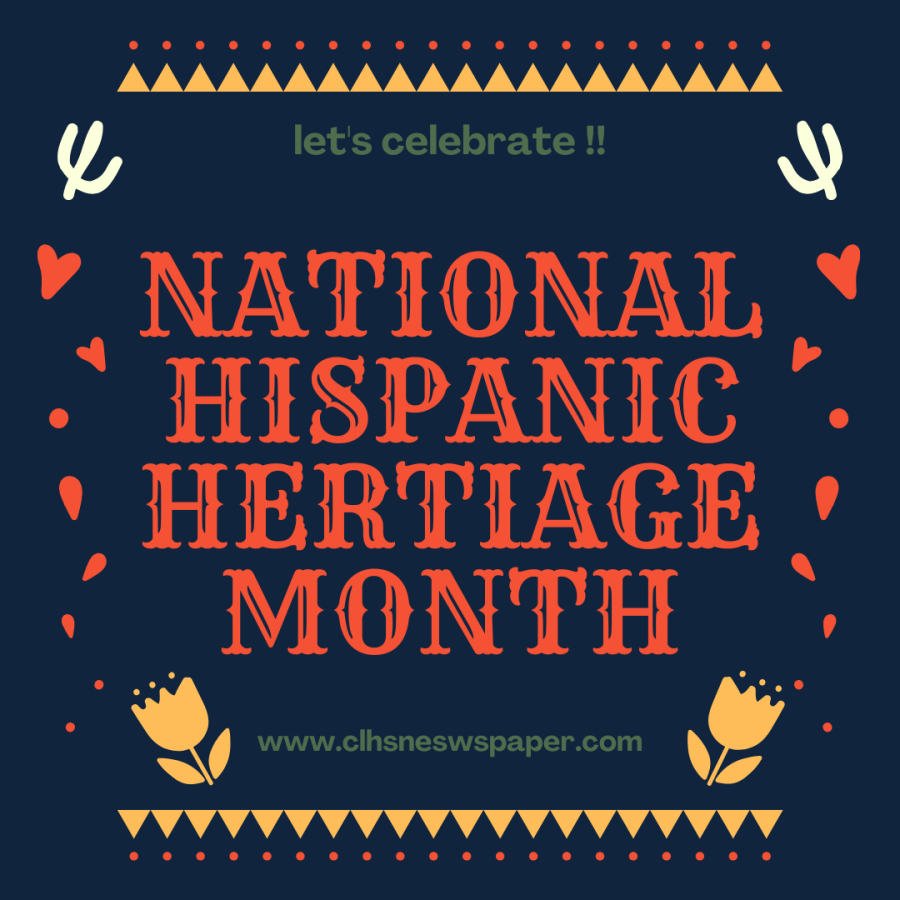National Hispanic Heritage Month
September 28, 2022
National Hispanic Heritage Month, observed from Sept. 15-Oct. 15, celebrates the history,
culture, and contributions that Hispanic Americans have had, and continue to have, on the
United States. The holiday is a celebration recognizing those with ancestry from Spain, Mexico,
the Caribbean, and Central and South America.
First introduced by Congressman George E. Brown in June of 1968, National Hispanic Heritage
Month was originally only Hispanic Heritage Week. George E. Brown represented East Los
Angeles and San Gabriel Valley, which were heavily populated Hispanic and Latinx communities,
and sought to create recognition for the impacts that these types of communities had on
American history. The prominence of the civil rights movement in the 1960’s influenced the
need for recognition of the Latinx and Hispanic community as multiculturalism and its
influences on America became widely recognized.
Congress officially passed Public Law 90-48 on September 17, 1968, which authorized and
requested President Lyndon B. Johnson to declare that the 15 th and 16 th of September to be the
beginning of National Hispanic Heritage Week.
In 1987, U.S Representative Esteban E. Torres (California) made a proposal to extend the
observance of Hispanic Heritage to span a month-long period, citing that this time period would
allow the nation to “properly observe and coordinate events and activities to celebrate Hispanic
culture and achievement.”
In 1988, Senator Paul Simon (Illinois) proposed a bill based on ideas expressed by Torres, which
was successfully passed by Congress and on August 17, 1988, was signed into law by President
Ronald Reagan. A year later, President George H.W. Bush became the president to declare
Sept.15-Oct.15 to be the period that constitutes National Hispanic Heritage Month.
The significance of the dates chosen for Hispanic Heritage Month lie the celebrations of
independence for many Latin American countries. For Costa Rica, El Salvador, Guatemala,
Honduras, and Nicaragua, September 15 represents their day of independence from Spain in
1821. Mexico, Chile, also celebrate their independence days within the first week of the month-
long celebration- Sept. 16 and 18.
So, as we go about celebrating this year’s National Hispanic Heritage Month, it’s important that
we remember the multitude of ways that Hispanic Americans have made their mark on not only
the history of the Nation, but on the history of the world.
Cesar Chavez (1927-1993)- American labor and civil rights activist who founded the National
Farm Workers Association (now known as the United Farm Workers Labor Union). Dedicated
his work to reducing the struggles of farm workers in the United States and aiding in the better
pay and working conditions of farm laborers.
Ellen Ochoa (1958- present)- First Hispanic American woman to go to space in 1993 aboard the
space shuttle Discovery. In 2013 she became the second woman ever to be director of the
NASA Johnson Space Center, and the first Hispanic American to do so. She promotes the
inclusivity of Hispanic women and people of color into the STEM field.
Julia Alvarez (1950-present)- Infamous Latin American poet, author, and essayist accredited
with being one of the most significant Latina writers at an international scale. Her works
assume themes of cultural identity and ideas of multiculturalism, immigration, and gender. In
2013 she received the National Medal of Arts from former-President Barack Obama.
Roberto Clemente (1934-1972)- The first Latin American and Caribbean to win a World series
as a starting baseball player in 1960. Paved the way for Hispanic Americans in Major League
Baseball and promoted accessibility and equality for Latino Americans in the U.S.
Sylvia Rivera (1951-2002)- Transgender activist that created advancements for LGBT+
community. She is recognized as one of the inciters of the Stonewall Riots in New York City as
well as the founder of the Gay Liberation front and Street Transvestite Action Revolutionaries
(STAR). Aided in creating recognition for the people of color who were a part of LGBT
communities and as well as the issues LGBT people of color faced in America.


